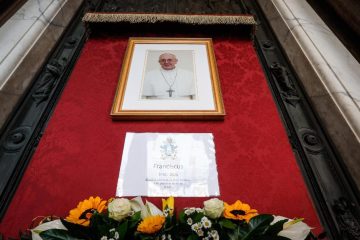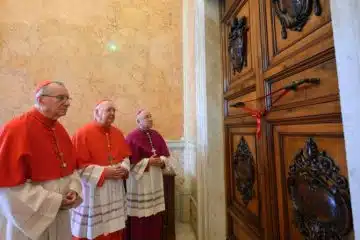Book Review: The Protestant’s Dilemma speaks the truth in love
Speaking the truth can be uncomfortable at times.
When it comes to our Protestant brothers and sisters and their ecclesial communities, there is great merit in acknowledging our similarities and in working and praying with them as allies in the seemingly-endless culture war. At the end of the day, however, a Catholic is called to proclaim the truth of the Catholic faith.
Author Devin Rose emphatically does that in his latest offering, “The Protestant’s Dilemma: How the Reformation’s Shocking Consequences Point to the Truth of Catholicism.” Published by Catholic Answers Press, the book speaks the truth in love through well-crafted examinations and a creative structure.
The Protestant’s Dilemma packs a great deal of history, apologetics and church teaching into its 224 pages, including endnotes.
The book contains a foreword, intro and afterword but the 34 chapters in the middle do the heavy lifting. In this book Rose seeks to confront protestants with their own claims by following those statements to their logical ends. The format for each chapter follows the same structure.
For example, chapter 27 on sexual morality opens with the thesis “If Protestantism is true, sexual morality is culturally conditioned and thus subject to change.” Following this thesis Rose explains when and why various Protestant denominations changed their teachings on contraception, homosexual activity and more. Rose quotes heavily from Protestant Reformer Martin Luther and makes frequent references to John Calvin and Huldrych Zwingli.
This section is followed by the Catholic rebuttal, “Because Catholicism is true, sexual morality transcends time and the shifting sands of cultural opinion.”
Rose presents the Catholic teachings without condescension, but also without apology. This is not a book that shies from confrontation. He cites often from sacred Scripture and the early church fathers to show the consistency of the Catholic viewpoint in contrast to the Protestant claims.
Finally, each chapter ends with The Protestant’s Dilemma. You’ll have to read the book for chapter 27’s ending, but suffice it to say the questions it poses will reinforce the belief of a Catholic and help open-minded Protestants consider whether they can honestly hold to their views in light of the evidence.
Rose notes up front that Protestantism does not refer to one particular belief structure, and the book is tailored to address them all. He writes in the introduction that he means the term to refer to “Anglicans, Anabaptists, Lutherans, Calvinists, Evangelicals and nondenominationals” as all of those groups trace their origins to the 1500s and share core beliefs of the Reformation such as sola scriptura (Bible alone), sola fide (faith alone), rejection of Apostolic Succession, and a shared 66 book canon of the Bible. (The Catholic Bible includes 73 books).
The Protestant’s Dilemma is a fairly accessible read for those with an existing interest in apologetics on either the Catholic or Protestant side. Though familiarity with important terms (ecumenical, christological, magisterium , etc.) is helpful, the context where such words are used makes their meaning fairly clear.
Rose said in an email that the book is great for Catholics looking to add to their apologetics base of knowledge as well as for Protestants discerning the Catholic faith. He added that he hasn’t received any feedback from Protestants who were upset by the book.
“So far the feedback from Protestants has been positive,” Rose said. “None have felt hurt or insulted by the book, and many have messaged me saying that they have found the book’s arguments helpful in their discernment. While I show Protestantism to be implausible, I do so in a way that focuses on the arguments and avoids polemical attacks.”
So whether you’re a Catholic looking to get at the root of most Catholic vs. Protestant arguments, or a Protestant willing to consider the claims of the Catholic Church, The Protestant’s Dilemma is a worthwhile read.
John Stegeman is a staff reporter for The Catholic Telegraph
This book review originally appeared in the June 2014 print edition of The Catholic Telegraph.













